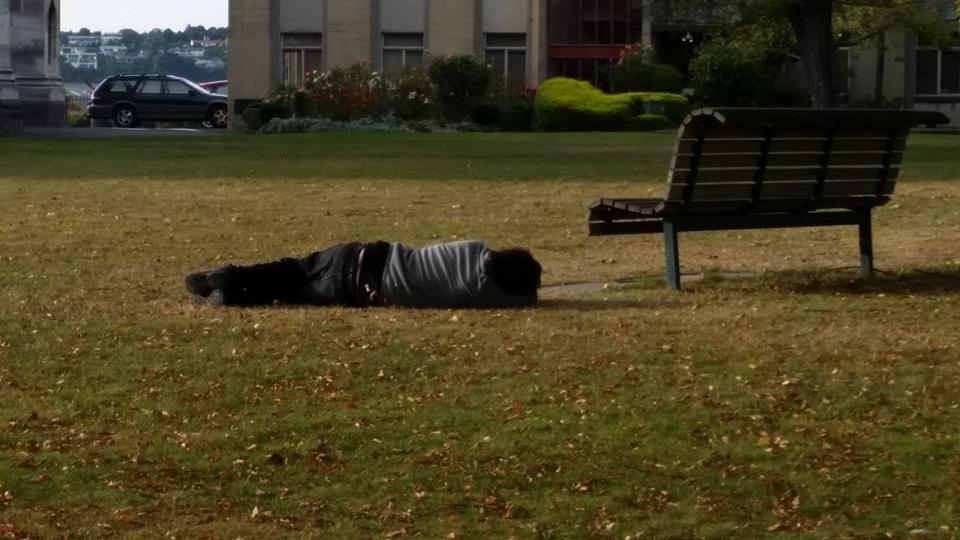Homelessness: having no other options to acquire safe, secure housing. And it’s happening right here in Otago.
Our Family Works team is seeing a major increase in requests for urgent housing assistance. In the first five months this year the Dunedin team alone has seen 26* clients seeking housing assistance; 20 of those people were already homeless, 14 of them were women, 11 with children.
Homelessness is defined as having no other options to acquire safe and secure housing. There are four categories identified by the Homelessness Parliamentary Working Group:
- Without shelter – “sleeping rough”
- Temporary accommodation – shelters, refuges, backpackers, hostels
- Sharing accommodation – “couch surfing”
- Uninhabitable housing – squats, dilapidated dwellings.
What’s the cause of the problem? Why are we seeing more and more people in housing crisis? Before we dive into the research and statistics, let’s look at the personal stories of two current clients seeking help.
Carla** has two school-age children, a mortgage and, until very recently, a job. Money was tight on a single wage but with careful management she was on top of her expenses. Then in December 2015 she lost her job. Her employer reduced staff and she was one of the unlucky ones to be shown the door.
Now Carla is at risk of losing her home and facing the very real prospect of dislocation and homelessness.
Her total weekly income is $569 inclusive of benefit, family tax credit and accommodation supplement. Her weekly outgoings, including repayments to creditors, total $755.11. She is currently going backwards by $186.11 per week. If Carla doesn’t find work soon she may be forced to sell her home. However, 2-3 bedroom rental accommodation in Dunedin ranges from $220 - $350 per week, at the lower end. As you can see from her budget (pictured), if she sells her home she will potentially be worse off in terms of weekly expenses, and have lost her only asset.
Let’s look at Dave**. He’s a single man living with mental and physical health issues. His total weekly income is $274.28, the amount provided by the WINZ Supported Living Payment. Dave lives in a boarding house; it’s not ideal. Like Dave, many of the boarding house residents have mental health or substance abuse history. It can be a volatile place and there is no resident carer to support him, or others, through stressful ‘episodes’.
Dave’s modest expenses also overrun his even more modest income. He ends each week another $57.08 in debt. Although not on the street, Dave is homeless.

The New Zealand Parliament Research Paper into Homelessness (July 2014) explored the demographics of the ‘severely housing deprived’. These may surprise you; 49% worked, studied or did both. “Despite this, they had insufficient resource to obtain a minimally adequate home for themselves or their family”.
They were predominantly children and young adults, ethnic minorities, and either part of sole-parent families or not accompanied by a family. They are not the scruffy, aging, drug addicted men you see portrayed in movies. They are far less visible, far younger and more likely to be women.
So what’s the answer for Dave, Carla and the many others facing severe housing deprivation? There is of course no ‘silver bullet’, but there are a number of areas where our Family Works team would like more support and greater community effort.
- More support for families and individuals facing relationship and personal challenges. Our Family Works team’s experience tells us that the sooner we can support a family, the less likely it is for family breakdown to occur, resulting in less demand for crisis housing.
- A larger pool of temporary, emergency housing suitable for parents and children. Temporary accommodation for 3-6 months would allow sufficient time to secure appropriate permanent housing for families. Too often people are forced into taking whatever property is available in a crisis situation, and it is rarely adequate in the longer term.
- A higher standard set for all rental accommodation to ensure warmer, safer, energy efficient housing for all tenants - a housing Warrant of Fitness.
While talking with Deb Gelling, Family Works Social Work Supervisor, for this article, she was called away to meet with a young professional woman who had walked in, very upset, seeking emergency housing. The problem is real, and growing.
* At time of writing
** Names changed to protect identity
